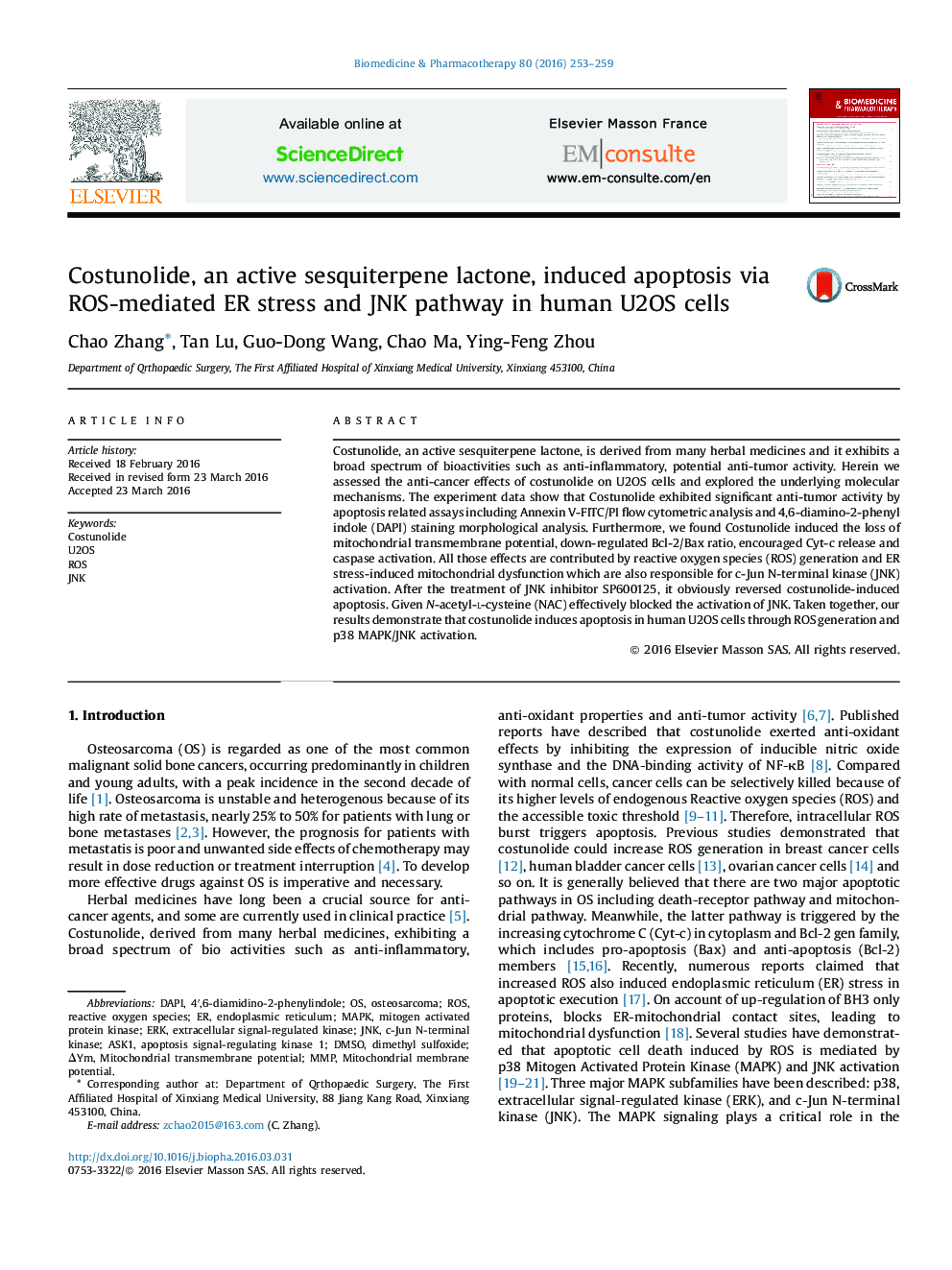| Article ID | Journal | Published Year | Pages | File Type |
|---|---|---|---|---|
| 2523756 | Biomedicine & Pharmacotherapy | 2016 | 7 Pages |
Costunolide, an active sesquiterpene lactone, is derived from many herbal medicines and it exhibits a broad spectrum of bioactivities such as anti-inflammatory, potential anti-tumor activity. Herein we assessed the anti-cancer effects of costunolide on U2OS cells and explored the underlying molecular mechanisms. The experiment data show that Costunolide exhibited significant anti-tumor activity by apoptosis related assays including Annexin V-FITC/PI flow cytometric analysis and 4,6-diamino-2-phenyl indole (DAPI) staining morphological analysis. Furthermore, we found Costunolide induced the loss of mitochondrial transmembrane potential, down-regulated Bcl-2/Bax ratio, encouraged Cyt-c release and caspase activation. All those effects are contributed by reactive oxygen species (ROS) generation and ER stress-induced mitochondrial dysfunction which are also responsible for c-Jun N-terminal kinase (JNK) activation. After the treatment of JNK inhibitor SP600125, it obviously reversed costunolide-induced apoptosis. Given N-acetyl-l-cysteine (NAC) effectively blocked the activation of JNK. Taken together, our results demonstrate that costunolide induces apoptosis in human U2OS cells through ROS generation and p38 MAPK/JNK activation.
